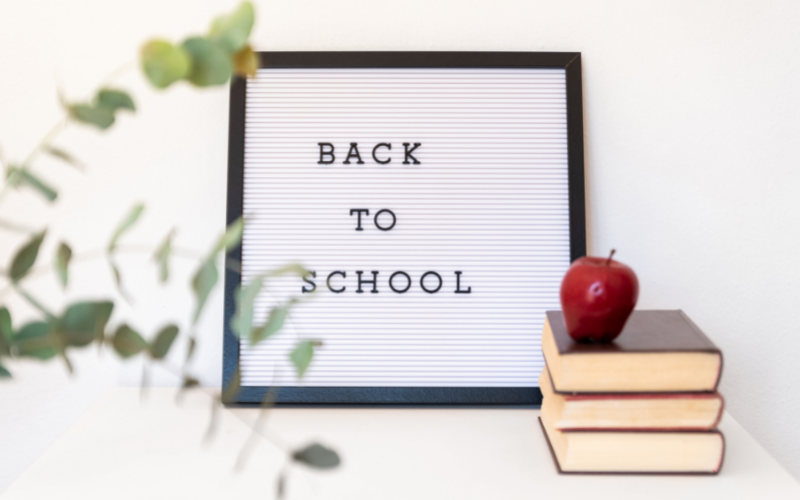The Importance of Teaching Children about Hearing Loss
The children are now back at school, and parents might be doing the school run for the first time or getting back into the swing of things again. Whatever the situation, this time can still be an anxious one for parents. As children embark on their school journey at primary school, start a new school year, meet a new teacher or find their bearings at high school – we are there to pick up the coats, polish the shoes and maybe wipe away the first week tears.
Having been in this situation many times myself and with working in the audiology industry, I do often wonder how parents feel when they wave goodbye to their child at the school gates. A child who has hearing loss and wears hearing aids. In reality, the child is generally fine and gets on with school life without a care – it’s the parents or guardians that may struggle and have reservations about ‘fitting in’, whether the school’s resources can provide, whether the class will relate and other such question marks.
The old school stigmas
There was once a time when glasses were labelled as uncool,and children would rather bump into a classroom door than wear the jam jars of a bygone time. Then the glass became thinner, the frames had a makeover and stylish designs emerged. Now people wear them as a choice, a fashion accessory when they don’t even need them. Hearing aids hold a similar negative attitude that glasses once did, but luckily hearing aid technology and design has come a long way since the brown banana you couldn’t miss.
However, there is still an essence of stigma surrounding hearing loss and hearing aids and it is only education and awareness that can squish this over time. Like with most things in life, we fear what we simply don’t ‘get’. Education is the power that sparks the path to understanding, inclusivity and belonging. A switch of attitude is needed and in many ways, it all starts with the kids.
Why is raising awareness so important?
We are lucky enough to live in a time when we have a wider scope of accessible resources online, which makes the challenge of educating ourselves about various topics much easier. Exposing a pool of digital tools, charity support, forums and community groups that we can navigate and tap into to better relate.
I am generalising here, but usually hearing loss isn’t a topic taught at school. Therefore, it is important that parents take the reins, be willing and well equipped to bring awareness in a way children understand. However harsh the reality is, a lack of relevancy can lead to judgement and contribute to bullying in the playground. But how do we start? I’ll be going through some really simple tips on how to educate young children about hearing loss and hearing aids – in the hope that it can inspire parents and guardians to bridge this gap.
I believe the best process within education is breaking it down. In regards to hearing loss, we can separate this topicinto three sections – how hearing works, how hearing aids work and finally how hearing aids help at school.
How hearing workso Search online for a diagram of inside an ear– perhaps you might want to print it off, so it is easier to see and point to when explaining (Places similar to Twinkl arereally good resources for free downloads like this).o Point and go through each part of the ear– The outer ear canal, eardrum and the auditory nerve that goes to the brain.o Using your finger show how sounds travel through each part. First the ear canal, the nerve and the brain. o Explain how the brain figures out what sound the ear heard and then lets them know, so they understand too. Was it a car? A bird? Mummy shouting “It’s time for tea”?o Point your finger to the nerve and explain that when children have hearing loss, it means that this part of the ear is damaged and needs a little help to hear.
How hearing aids worko Firstly, explain that hearing aids work a bit like a funnel, which zooms in on the sound and then zaps it straight to the ear.o The hearing aid the child is wearing understands sound so that the auditory nerve can also understand what the sound is. How clever is that?!
How hearing aids help in the classroomo Explain that it is hard for children with hearing loss to hear as they do in their classroom without hearing aids. They might be too far away for them to hear or for them to read their lips. Their voice might even be too quiet for them to hear even if they are sitting next to them.o Hearing aids make their voice and other sounds louder so they can hear better, understand what everyone issaying and be involved with the rest of their friends and classroom.o Explain that there might be days when the teacher wears a microphone around their neck, so the teacher’s voice is loud enough for their friend with hearing aids to hear better – so all the class can join in together!
Nurturing a young mind to not discriminate
Tell your child that their friend with hearing loss still likes to play, eat sweets and read like all the other children in the classroom and it is important to ask them to join in all theirgames. Tell them that hearing aids are cool and hearing loss doesn’t mean they are different – it just means that their ears need a little bit of help.
Children are always watching and listening – they are taking it all in. Their brains are like sponges that crave more information and experiences. Studies show that when parents talk to young children about life issues it promotes better decisions when they are adults themselves.
When we talk to our children about life issues and topics – something wonderful happens. It welcomes the curb of stigma and exclusivity. It gives them a platform to make their own choices when they are older and sparks many interesting conversations at the breakfast table, as natural habits and awareness begin to dictate.
This guest blog post was written by Paul Harrison – Audiology Expert & Founder of Hearing Aid UK

